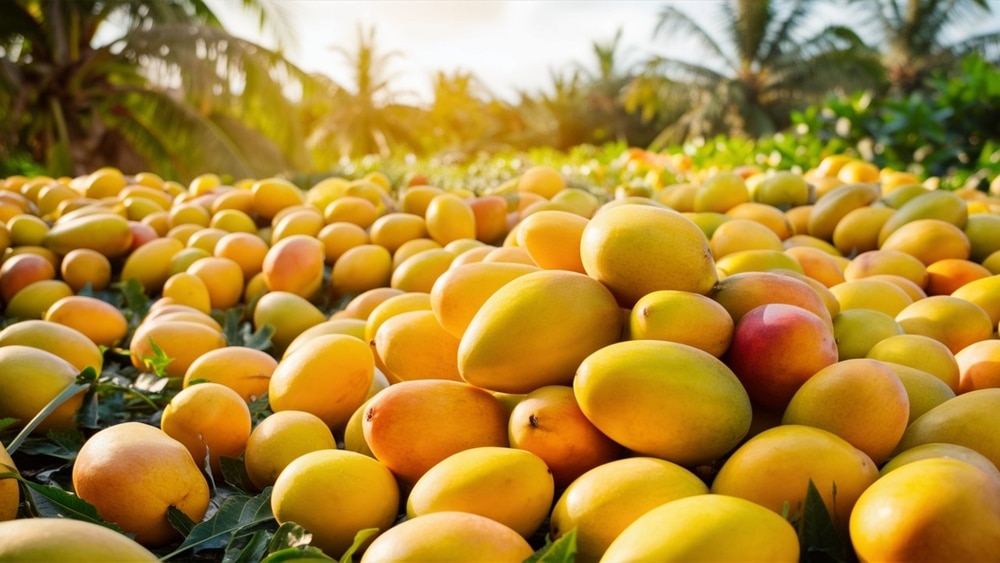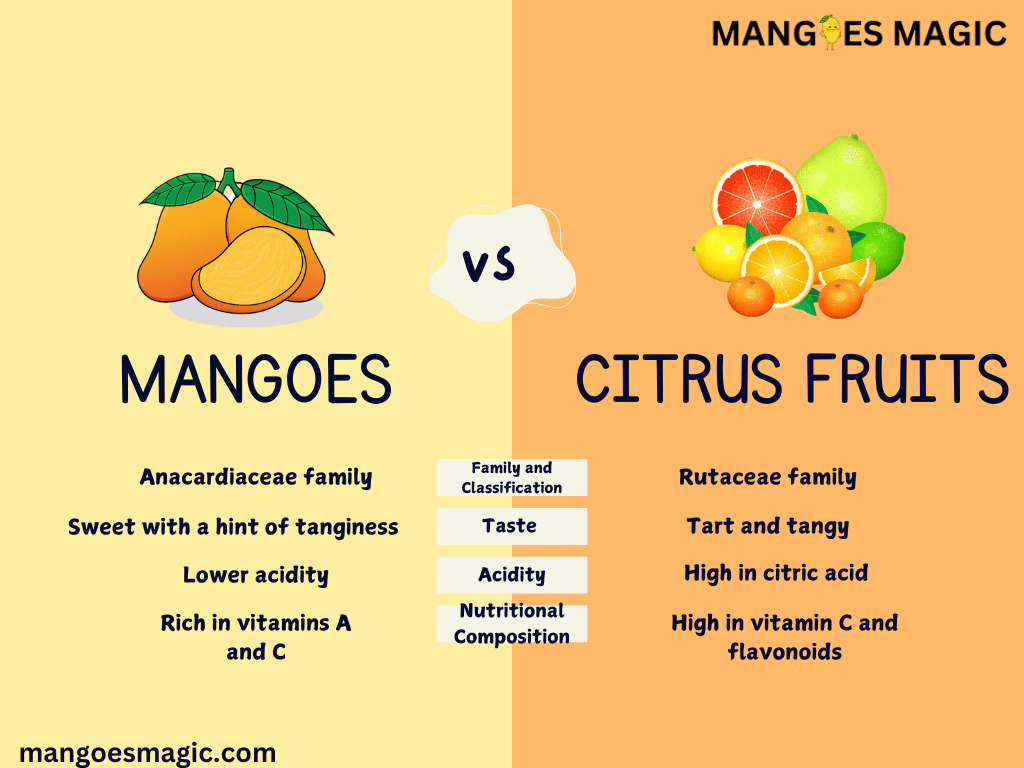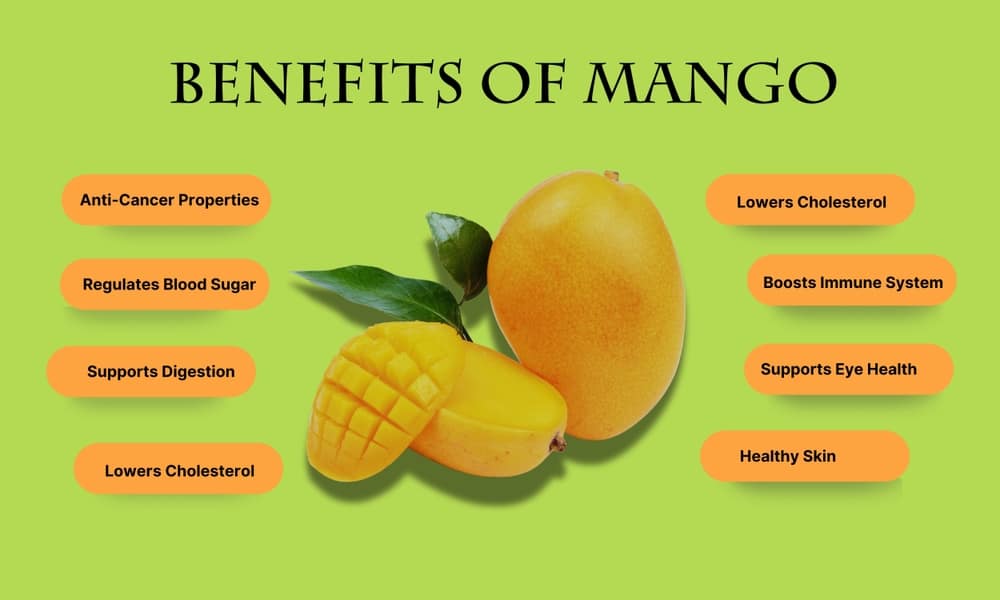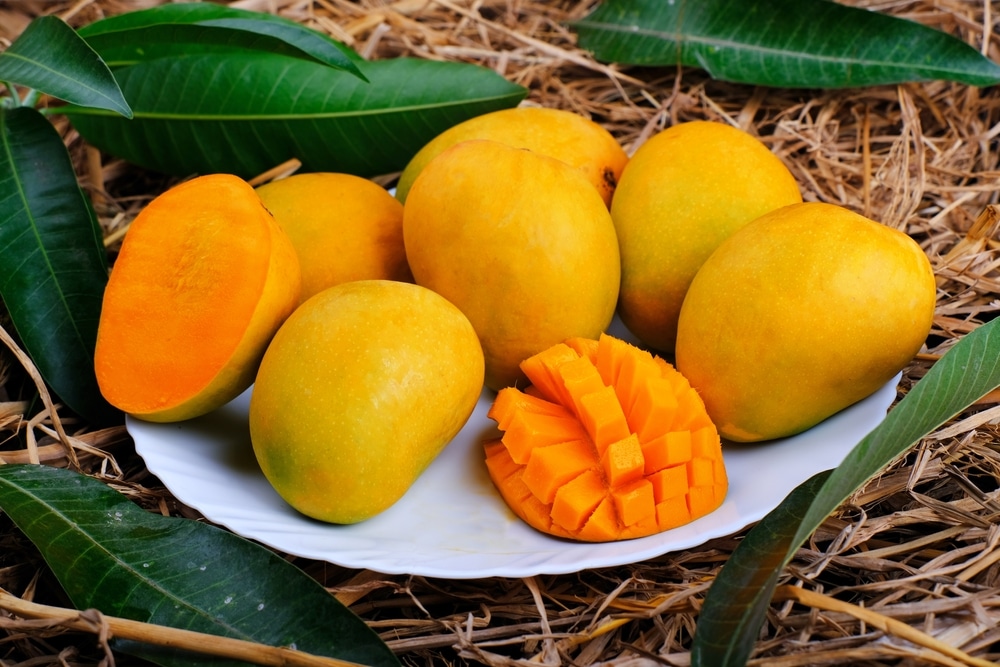Table of Contents
Mangoes are often celebrated as the “king of fruits,” adored for their vibrant yellow color, luscious sweetness, and tropical aroma. But have you ever wondered, is mango a citrus fruit? With their tangy notes and occasional resemblance to citrus fruits like oranges and lemons, it’s easy to see why this question sparks curiosity. From their diverse mango varieties to the unique organic acids that give ripe mangoes their irresistible mangoes taste, there’s so much to uncover about this tropical treasure. To answer this intriguing question, we must dive into the world of mango varieties, citrus fruits, and the unique characteristics of this tropical delight. Let’s explore the facts and uncover whether the mango is citrus, along with some interesting insights about this luscious fruit.
What Is a Mango?

Mangoes are tropical fruits belonging to the Anacardiaceae family. The scientific name of the mango is Mangifera indica. Originating from South Asia, mangoes are known for their juicy, sweet, and slightly tangy flavor. They are widely regarded as the “king of fruits” due to their rich taste and nutritional value. A fun fact about mangoes is their incredible diversity. There are over 500 mango varieties worldwide, each with its distinct flavor, texture, and yellow color, ranging from golden hues to deep orange tones. Some are sweet and creamy, while others are tart and fibrous.
Is Mango a Citrus Fruit?
The No, mangoes are not classified as citrus fruits. Citrus fruits, such as oranges, lemons, limes, and grapefruits, belong to the Rutaceae family and are characterized by their high levels of citric acid, which gives them a tart taste. Mangoes, on the other hand, have a sweeter and less acidic profile.
However, this doesn’t mean mangoes lack organic acids. In fact, ripe mangoes contain malic and tartaric acids, which contribute to their unique mangoes taste. These acids are milder compared to the dominant citric acids found in citrus fruits.
Why Mangoes Are Not Citrus Fruits
The distinction becomes clearer when comparing mangoes’ taste with that of oranges, lemons, and other citrus varieties. While mango varieties can be sweet, tangy, or even slightly spicy, their acidity levels are generally lower than those of citrus fruits. Additionally, mangoes lack the segmented interior and leathery rind typical of citrus. Unlike citrus fruits, mangoes are classified as stone fruits due to their single large seed.
Key Differences Between Mangoes and Citrus Fruits

Here are some distinctions to clarify the difference:
Family and Classification
- Mangoes: Belong to the Anacardiaceae family.
- Citrus Fruits: Belong to the Rutaceae family.
Taste
- Mangoes: Primarily sweet with a hint of tanginess, depending on the variety.
- Citrus Fruits: Generally tart and tangy due to citric acid.
Acidity
- Mangoes: Have lower acidity and contain malic and tartaric acids, with minimal citric acid.
- Citrus Fruits: High in citric acid, contributing to their sharp, tangy flavor.
Nutritional Composition
- Mangoes: Rich in vitamins A and C, as well as antioxidants like beta-carotene.
- Citrus Fruits: High in vitamin C and flavonoids, known for boosting immunity.
Health Benefits of Mangoes

Mangoes are not only delicious but also packed with health benefits. Here are a few:
Boosts Immunity
Thanks to its high vitamin A and C content, mangoes support a strong immune system.
Promotes Eye Health
The beta-carotene in mangoes is good for maintaining healthy vision.
Improves Digestion
Mangoes contain dietary fiber and enzymes like amylase that aid in digestion.
Supports Skin Health
The antioxidants in mangoes help fight free radicals, keeping your skin youthful and radiant.
Why People Confuse Mangoes with Citrus Fruits
- Mangoes and citrus fruits often grow in similar tropical and subtropical climates, which may lead to confusion.
- Both are juicy, flavorful fruits that are refreshing and used in similar recipes, like smoothies, salads, and juices.
- Some varieties of mangoes have a slight tanginess, resembling the flavor profile of citrus fruits.
If you’re a fan of both mangoes and citrus fruits, you’re in luck—they complement each other wonderfully in recipes, offering a perfect balance of sweetness and tang like in mango margaritas.
Conclusion
While mangoes share some characteristics with citrus fruits, such as being juicy and high in vitamin C, they are not true citrus fruits. Mangoes belong to a completely different botanical family and have their own unique flavor, nutritional profile, and health benefits. Whether you enjoy mangoes in smoothies, desserts, or simply fresh, they are a tropical delight that stands apart from the citrus category.

